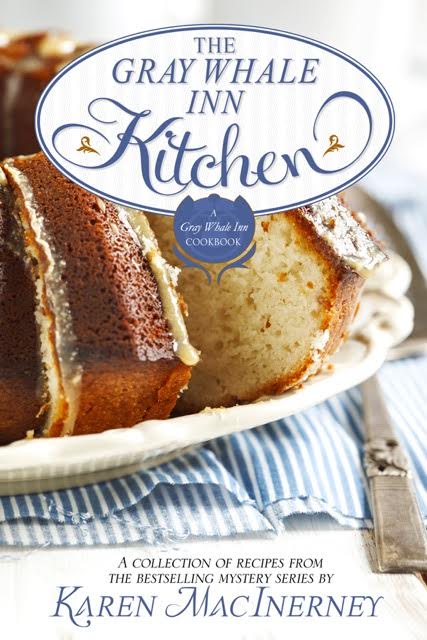I’d love to! I often attend local book clubs, and am happy to Skype if we live in different places. I am also available as a speaker (I’ve been a keynote speaker on creativity at multiple events for libraries and other organizations); just send me an e-mail and we’ll see what we can set up!
Will you come speak to my group or visit my book club?
Do you live in Maine?
I have not yet had that privilege, no. I grew up in upstate New York and now live in Texas, but I grew up going to my grandparents’ house on an island off the coast of Newfoundland, which inspired the island setting. (Many of the surnames in the Gray Whale Inn mysteries are family names, in fact.) When some friends invited us to visit them on Little Cranberry Island several years ago, everything clicked into place. I try to make it back to Maine (for research purposes, of course) every summer.
What else are you working on?
I’m always working on the next Dewberry Farm and Gray Whale Inn mysteries, but I’ve got two more cozy series in the works. The Misty Hollow paranormal cozy mystery series is scheduled to debut this year… I’ll post more details when I have them!
Will there ever be any more Wolves in the City books?
Unfortunately, the Wolves in the City will, at least for the foreseeable future, remain a trilogy. If Sophie decides to take the stage again, though, I’ll be sure to let you know!
I have a great idea for a book. Do you want to write it?
Even if I wanted to, I probably couldn’t. I have to write the stories that bubble up inside of me. On the other hand, it sounds like you have a book in you; maybe you should give it a shot!
What is your writing process?
When it’s going well, I write 1,000-1,500 words a day, usually in the morning. Sometimes I am more routine about it than others. When I’m stopped (which happens more often than I’d like), it’s usually because there’s a problem with the plot that my subconscious is working through (long walks seem to help with this process). I’m happiest when I’m working, though, so I do prefer it when I’m writing daily, although I do take weekends off. I don’t generally outline, but I like to have an idea of where I’m going. When I’m stuck, I do often outline a few chapters just so that I have a ‘plan’ when I sit down to work the next day, but the story usually diverges within the first two scenes. Ah, well.
Do you write everything from personal experience?
Someone once asked me this two seconds after hearing I’d written a trilogy about a reluctant werewolf. I am not kidding. (The answer, just to be clear, is no.)
Were you an English major?
Actually, I was a German major, and originally came back to Texas to get a PhD in ecology (I was going to do research on invasive plants). Looking back, though, even in my college years, I was already on the path to the writing career. I spent most of my time reading paperbacks, and took both creative writing and poetry classes, in which I wrote many boring and dreadfully self-conscious pieces. We all have to start somewhere.
I’ve always wanted to be a writer. How did you get started?
Well, I’ve always been a compulsive reader, so I think that long before I began writing, I had fallen in love with the form and internalized a feeling for what works in a book and what doesn’t. (At least I’d like to think so.) Like most of us, though, my inner editor kept getting in the way of my efforts to write, and it wasn’t until I read Natalie Goldberg’s Writing Down the Bones that I really learned to work through that. I belonged to a writing practice group for years, and when I decided to write my first mystery, I searched for a critique group, but couldn’t find one. One night, as I was sitting at the computer at two in the morning, on impulse I put an ad in the Writers’ League of Texas newsletter. That ad resulted in a critique group called Austin Mystery Writers, which gave me the support I needed to make it through the first book and a few beyond. Although I no longer attend regularly, the group is still meeting, and most of my writing buddies have gone on to be published. One of them, Kaye George, has even been nominated for two Agatha awards!
I also found it helpful to ‘take apart’ books I enjoyed and was hoping to emulate, looking for scene structure, voice, dialogue, number of suspects, pacing… the nuts and bolts of a fiction book. (I chose mysteries not only because I loved reading them, but because they conveniently came with a built-in basic plotline.) Helpful inspirational writing books include anything by Lawrence Block and several of the books by Julia Cameron – I still refer to them from time to time. I would also recommend finishing the first book you start, no matter how awful it seems, just to prove to yourself that you can do it. Persistence pays in this business; my mentor Barbara Burnett Smith wrote 12 books before she found a publisher!
What is your favorite color?
Blue. Closely followed by green.




